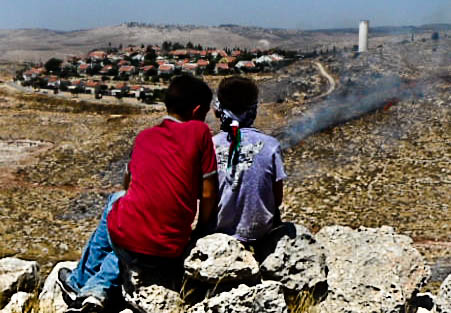Category: Reports
-
Israel deports Spanish aid worker
21 June 2011 | Civil Peace Service Gaza Ignacio Garcia-Pedraza, a Spanish PSCC worker and Al Quds University trainer, 36 years old and living in Madrid, has been informed this morning at 9:00 a.m. by the Israeli Ben Gurion airport authorities that he had been denied the entry into Israel and the occupied Palestinian Territory…
-
Two fishing boats shot off Gaza coast
21 June 2011 | International Solidarity Movement At around 9am on June 21, two fishing boats were attacked by the Israeli Navy, with bullets piercing both engines, rendering them unusable. The first boat was shot at in the motor, at the rear end and, when the 4-man crew took cover at the front of the…
-
67 people displaced following demolition of Bedouin village by Israeli army
20 June 2011 | International Solidarity Movement On June 20th at 7am a Bedouin village, south of Hebron in Khirbet Bir al’Idd was struck down with Israeli bulldozers destroying seven tin homes and several other sheds and tents. The Israeli army and border police arrived to demolish the homes claiming the area was classified as…
-
Presence with a splash of tea is recipe for detainment
19 June 2011 | International Solidarity Movement On Sunday June 19th, six International Solidarity Movement activists from the United Kingdom, United States, Brazil, Germany, and Sweden were illegally arrested by the Israeli military after attending a demonstration against the construction on confiscated land belonging to the Palestinian village, Deir Qaddis. Apart from numerous Palestinian, Israeli, and international…
-
Beit Ommar in “defiance of instruction”
18 June 2011 | International Solidarity Movement On June 18 2011 the weekly Beit Ommar demonstration proceeded towards a fence which encircles the nearby settlement of Karmei Tzur and separates the village from some of its land. A number of protesters reached the fence and planted a Palestinian flag. Local women walked home across the…

